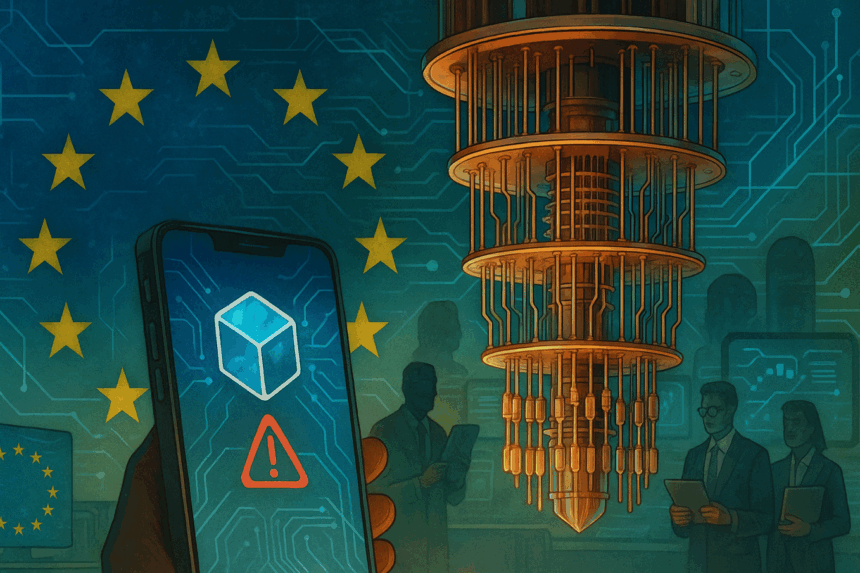The European Commission launches its first Quantum Strategy to position the EU as a global leader in quantum technologies. This aggressive plan is designed to keep Europe competitive against heavyweights like the U.S. and China in the fast-moving quantum race.
What’s Happening & Why This Matters
Quantum computing might sound futuristic, but it’s already transforming industries. Unlike classical computers, quantum machines process many calculations simultaneously. This capability opens new frontiers for tackling problems that are beyond the reach of traditional computers.
Applications are already emerging. In healthcare, quantum-powered MRI scanners promise earlier and more precise diagnoses for diseases like cancer and Alzheimer’s. Quantum sensors help map underground water and monitor seismic activity. Meanwhile, the EU is developing a quantum communication network to protect data from future cyberattacks powered by quantum computers.
Quantum tech has dual-use potential, impacting both civilian life and military defense. Sensors could detect submarines or underground structures. Quantum communication offers unprecedented encryption for secure battlefield communications.
Despite Europe’s strength—hosting a third of the world’s quantum startups and leading scientific publications — it trails in commercializing these breakthroughs. The Commission presents fragmented national efforts, limited private investment, and a lack of industrial early adopters as challenges.
Countries like France and Germany have ambitious national strategies, backed by billions in funding, to boost quantum technology development. Others, including the Netherlands, Finland, and Austria, focus on specific quantum areas such as communication and sensing.
The new EU strategy unifies these efforts. It plans to boost investments, improve coordination, and expand infrastructure, including quantum chip production and computing facilities. Executive Vice-President Henna Virkkunen stresses the urgency: “It is crucial to act now. Our aim is to propose solutions for scaling up and to lead.”
The Commission also previews the forthcoming Quantum Act, which is expected to be introduced in 2026. This law will create a legal framework to accelerate investments, support innovation, and coordinate efforts across Europe.
TF Summary: What’s Next
The EU’s Quantum Strategy opens a new chapter for Europe in the global quantum race. By consolidating resources and streamlining innovation, Europe scales up production and applications swiftly.
The upcoming Quantum Act will provide crucial legal support, ensuring sustained momentum. As Europe advances, the quantum revolution promises to transform industries, security, and scientific research.
— Text-to-Speech (TTS) provided by gspeech


